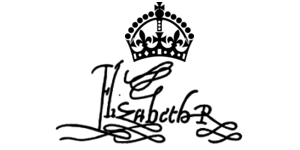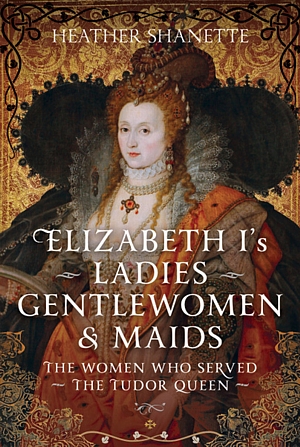
William Shakespeare
Quotes
Plays
All the world's a stage, and all the men and women merely players: they have their exits and their entrances; and one man in his time
plays many parts.
As You Like it: Act II, Scene VII
To be, or not to be: that is the question.
Hamlet: Act III, Scene I
Some are born great, some achieve greatness, and some have greatness thrust upon them.
Twelfth Night: Act II, Scene V
Cowards die many times before their deaths; the valiant never taste of death but once.
Julius Caesar: Act II, Scene II
One that loved not wisely, but too well.
Othello: Act 5, Scene II
We are such stuff as dreams are made on, and our little life is rounded with a sleep.
The Tempest: Act IV, Scene I
Double, double toil and trouble; Fire burn, and cauldron bubble!
Macbeth: Act IV, Scene I
Life’s but a walking shadow, a poor player, that struts and frets his hour upon the stage, and then is heard no more;
it is a tale told by an idiot, full of sound and fury, signifying nothing.
MacBeth: Act 5, Scene 5
Give the devil his due.
Henry IV (Part I): Act I, Scene II
"The better part of valour is discretion".
Henry IV (Part I): Act V, Scene IV
"He hath eaten me out of house and home".
Henry IV (Part II): Act II, Scene I
What's done is done.
Macbeth: Act III, Scene II
I'll not budge an inch.
Taming of the Shrew: Induction, Scene I
If music be the food of love, play on.
Twelfth Night: Act I, Scene I
Look like the innocent flower, but be the serpent under't.
Macbeth: Act I, Scene
What’s in a name? A rose by any name would smell as sweet.
Romeo and Juliet: Act II, Scene II
Love sought is good, but giv'n unsought is better.
Twelfth Night: Act III, Scene I
We few, we happy few, we band of brothers.
Henry V: Act IV, Scene III
But man, proud man,
Dressed in a little brief authority,
Most ignorant of what he’s most assur’d;
His glassy essence, like an angry ape,
Plays such fantastic tricks before high heaven,
As make the angels weep.
Measure For Measure: Act II, Scene II
Out of the jaws of death.
Twelfth Night: Act III, Scene IV
The first thing we do, let's kill all the lawyers.
Henry VI: Act IV, Scene II
Nature teaches beasts to know their friends.
Coriolanus: Act II, Scene I
The miserable have no other medicine but only hope
Measure For Measure: Act III, Scene I
"Why, then the world 's mine oyster"
The Merry Wives Of Windsor: Act II, Scene II
To thine own self be true.
Hamlet: Act I, Scene III
The devil can cite scripture for his purpose.
The Merchant of Venice: Act I, Scene III
All that glisters is not gold.
The Merchant of Venice: Act 2, Scene 7
T’is neither here nor there.
Othello: Act IV, Scene III
Everyone can master a grief but he that has it.
Much Ado about Nothing: Act III, Scene II
I will wear my heart upon my sleeve for daws to peck at.
Othello: Act I, Scene I.
The common curse of mankind: folly and ignorance.
Troilus and Cressida: Act II, Scene III
To mourn a mischief that is past and gone is the next way to draw new mischief on.
Othello: Act I, Scene III
There’s small choice in rotten apples.
The Taming of the Shrew: Act I, Scene 1
The robbed that smiles steals something from the thief.
Othello: Act I, Scene III
It is the green-eyed monster which doth mock.
Othello: Act III, Scene III
Doubt that the sun doth move, doubt truth to be a liar, but never doubt I love.
Hamlet: Act II, Scene II
In the twinkling of an eye.
The Merchant of Venice: Act II, Scene II
Nothing will come of nothing.
King Lear: Act 1, Scene 1
Brevity is the soul of wit.
Hamlet: Act II, Scene II
Parting is such sweet sorrow.
Romeo and Juliet: Act II, Scene II
The course of true love never did run smooth.
A Midsummer Night's Dream: Act 1, Scene 1
In my mind's eye.
Hamlet: Act I, Scene II
There is nothing either good or bad, but thinking makes it so.
Hamlet:Act II, Scene II
When sorrows come, they come not single spies, but in battalions.
Hamlet: Act IV, Scene V
Love looks not with the eyes, but with the mind; and therefore is winged Cupid painted blind.
A Midsummer Night's Dream: Act I, Scene I
The lady doth protest too much, methinks.
Hamlet: Act III, Scene II
But, for my own part, it was Greek to me.
Julius Caesar Act I, Scene II
Love all, trust a few, do wrong to none.
All's Well That Ends Well Act I, Scene I
Neither a borrower nor a lender be.
Hamlet: Act I, Scene III
Better three hours too soon than a minute too late.
Merry Wives of Windsor: Act II, Scene II
Wisely, and slow. They stumble that run fast.
Romeo and Juliet: Act II, Scene III
Uneasy lies the head that wears the crown.
Henry IV (Part II): Act III, Scene I
Misery acquaints a man with strange bedfellows.
The Tempest: Act II, Scene II
We know what we are, but know not what we may be.
Hamlet: Act 4, Scene 5
Golden lads and girls all must, as chimney-sweepers, come to dust.
Cymbeline: Act IV. Scene II
Though this be madness, yet there is method in't.
Hamlet: Act II, Scene II
Sonnets
Like as the waves make towards the pebbled shore,
So do our minutes hasten to their end.
Sonnet 60
Time doth transfix the flourish set on youth
And delves the parallels in beauty's brow.
Sonnet 60
...in black ink my love may still shine bright.
Sonnet 65
No longer mourn for me when I am dead
Than you shall hear the surly sullen bell
Give warning to the world that I am fled
From this vile world with vilest worms to dwell.
Sonnet 71
That time of year thou may'st in me behold,
When yellow leaves, or none, or few, do hang
Upon those boughs which shake against the cold,
Bare ruined choirs, where late the sweet birds sang.
Sonnet 73
So all my best is dressing old words new,
Spending again what is already spent.
Sonnet 76
Time's thievish progress to eternity.
Sonnet 77
That time of year thou may'st in me behold,
When yellow leaves, or none, or few, do hang
Upon those boughs which shake against the cold,
Bare ruined choirs, where late the sweet birds sang.
Sonnet 73
Farewell! thou art too dear for my possessing.
Sonnet 87
For sweetest things turn sourest by their deeds;
Lillies that fester smell far worse than weeds.
Sonnet 94
...on the finger of a throned queen
The basest jewel will be well esteem'd
Sonnet 96
How like a winter hath my absence been
From thee, the pleasure of the fleeting year!
What freezings have I felt, what dark days seen!
What old December's bareness everywhere!
Sonnet 97
...April, dressed in all his trim,
Hath put a spirit of youth in everything,
Sonnet 98
To me, fair friend, you never can be old
Sonnet 104
For we, which now behold these present days,
Have eyes to wonder, but lack tongues to praise.
Sonnet 106
...Love is not love
Which alters when it alteration finds,
Sonnet 116
Love...is an ever-fixed mark,
That looks on tempests and is never shaken
Sonnet 116
Love's not Time's fool.
Sonnet 116
Thou blind fool Love, what dost thou to mine eyes,
That they behold and see not what they see?
Sonnet 137
When my love swears that she is made of truth,
I do believe her though I know she lies.
Sonnet 138
Be wise as thou art cruel, do not press
My tongue-tied patience with too much disdain:
Sonnet 140
'I hate', from hate away she threw,
And saved my life saying 'not you'.
Sonnet 145
So shall thou feed on Death, that feeds on men,
And Death once dead, there's no more dying then.
Sonnet 146
...I have sworn thee fair, and thought thee bright,
Who art as black as hell, as dark as night.
Sonnet 147
O cunning love, with tears thou keep'st me blind,
Lest eyes well-seeing thy foul faults should find.
Sonnet 148
Love is too young to know what conscience is;
Yet who knows not conscience is born of love?
Sonnet 151
Love is too young to know what conscience is;
Yet who knows not conscience is born of love?
Sonnet 151















































